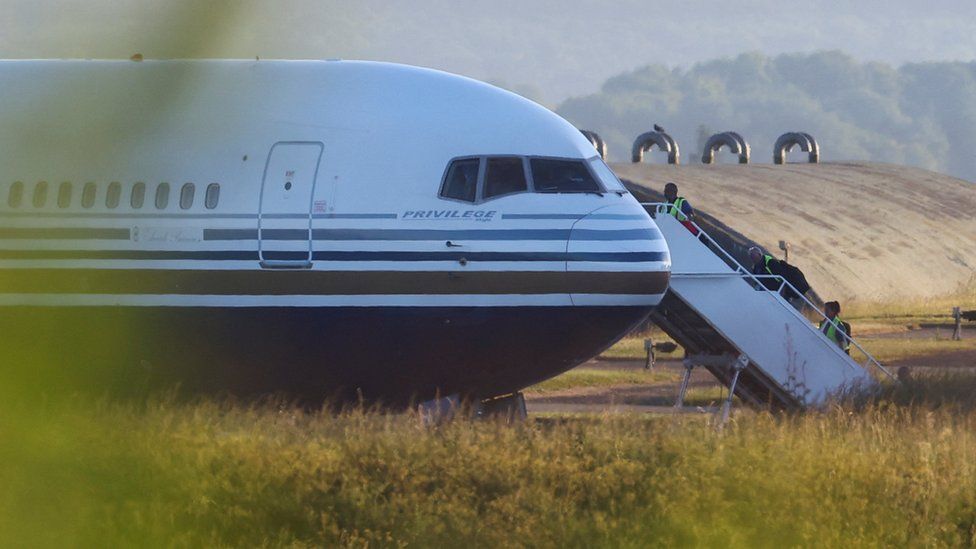ARTICLE AD BOX
 Image source, Reuters
Image source, Reuters
Flights to Rwanda were grounded at the last minute in 2022 after legal challenges
By Paul Seddon
Politics reporter
The government has ruled out making concessions to get its Rwanda deportation law through the House of Lords later.
MPs are voting on the bill once again, as wrangling continues over the plan to send asylum seekers to the east African nation.
Opposition peers have insisted on changes to the draft law, to make sure Rwanda is a safe destination.
But No 10 says it is "not considering concessions" to ensure the bill passes.
MPs are set to overturn four changes made by peers on Monday, meaning it would return once again to the House of Lords later.
Labour says its peers will continue to press for changes to the bill, including a ban on sending people who have assisted the UK military to Rwanda.
However, the party does not have a majority in the Lords. It means the legislation could pass its final stages later on Wednesday, if crossbench - or independent - peers decide not to continue their opposition.
This would pave the way for the bill to officially become law within days, with ministers hoping to get flights off the ground within weeks.
Prime Minister Rishi Sunak has made the scheme a key part of his plan to stop people crossing the English Channel in small boats.
First announced two years ago under Boris Johnson, the programme has been beset by delays.
Legal challenges
The legislation making its way through Parliament was unveiled earlier this year, after the scheme was ruled unlawful by the Supreme Court last year.
In a attempt to resurrect the programme and prevent legal challenges blocking future deportations, it would say Rwanda is a safe country in UK law.
It would also restrict the ability of the courts to block flights on human rights grounds - something ministers argue is necessary step to ensure deportations are not derailed by legal challenges.
But critics say the scheme will put people at risk, and the legislation undermines the independence of the courts.
Labour argues the scheme will not succeed in deterring people from making the journey and has vowed to scrap it if it wins power at the election.
However, ministers are keen to get the scheme up and running before the next election, expected later this year.

 1 year ago
78
1 year ago
78








 English (US) ·
English (US) ·